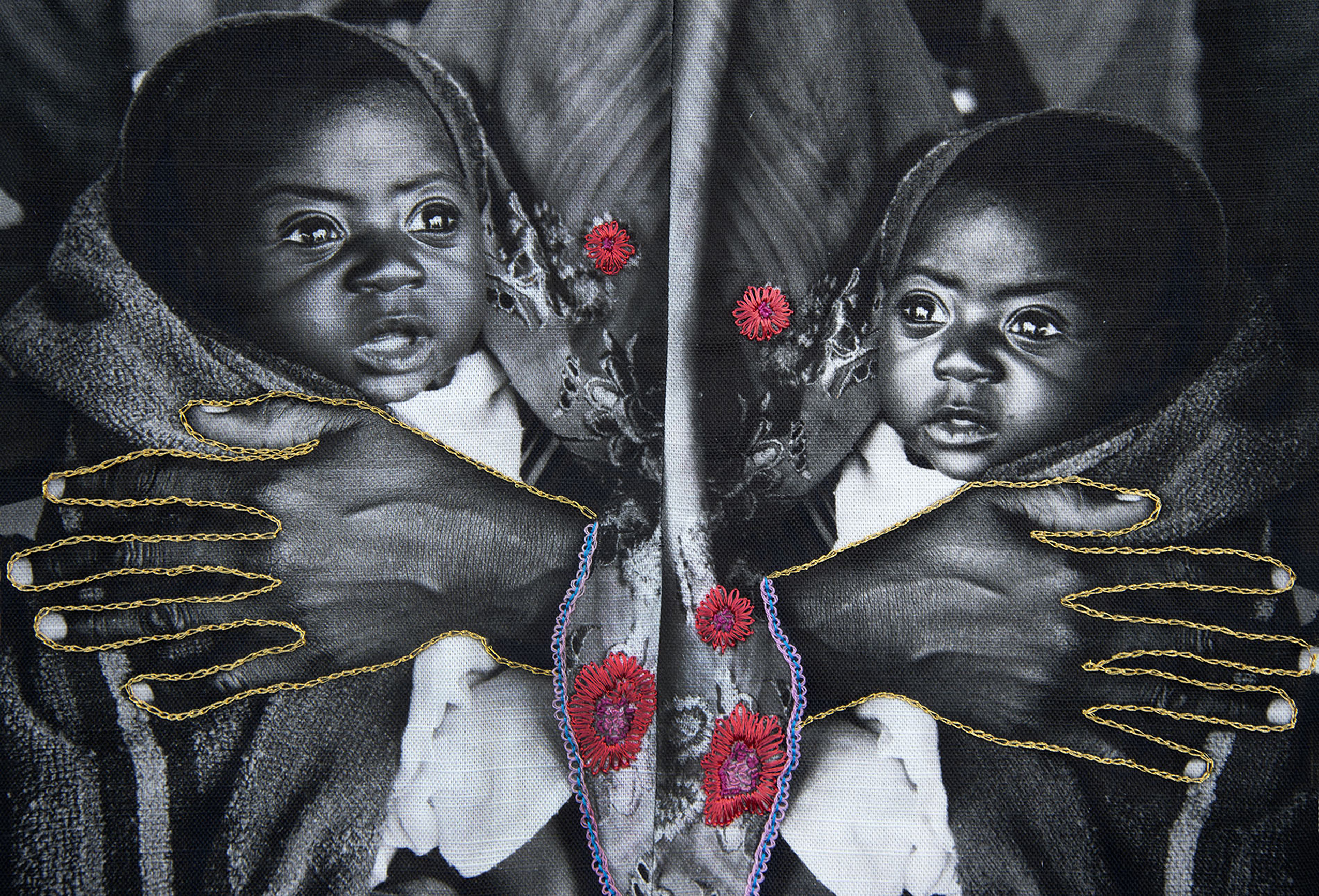Sudan, Lives Torn Apart by War, 2023 (Original Image 1986). All images © Jenny Matthews and courtesy Street Level Photoworks
Jenny Matthews’ work is proof that a camera is a weapon in the hands of women, empowering them to dismantle societal norms and document untold stories
Sewing Conflict: Photography, War and Embroidery is a powerful solo exhibition by documentary photographer and filmmaker Jenny Matthews. Her latest work demonstrates an important strand of contemporary British art practice in combining photography and embroidery – an engaging blend of visual storytelling and traditional craft techniques. The exhibition showcases issues such as dispossession, human rights, and the lives of women and girls.
Throughout her career, Matthews has fearlessly captured the stories of individuals affected by conflict. From the guerrilla war and independence of Eritrea to the struggles of the Sandinistas in Nicaragua, her photography has shone a light on momentous historical events and the resilience of those caught up in their wake.
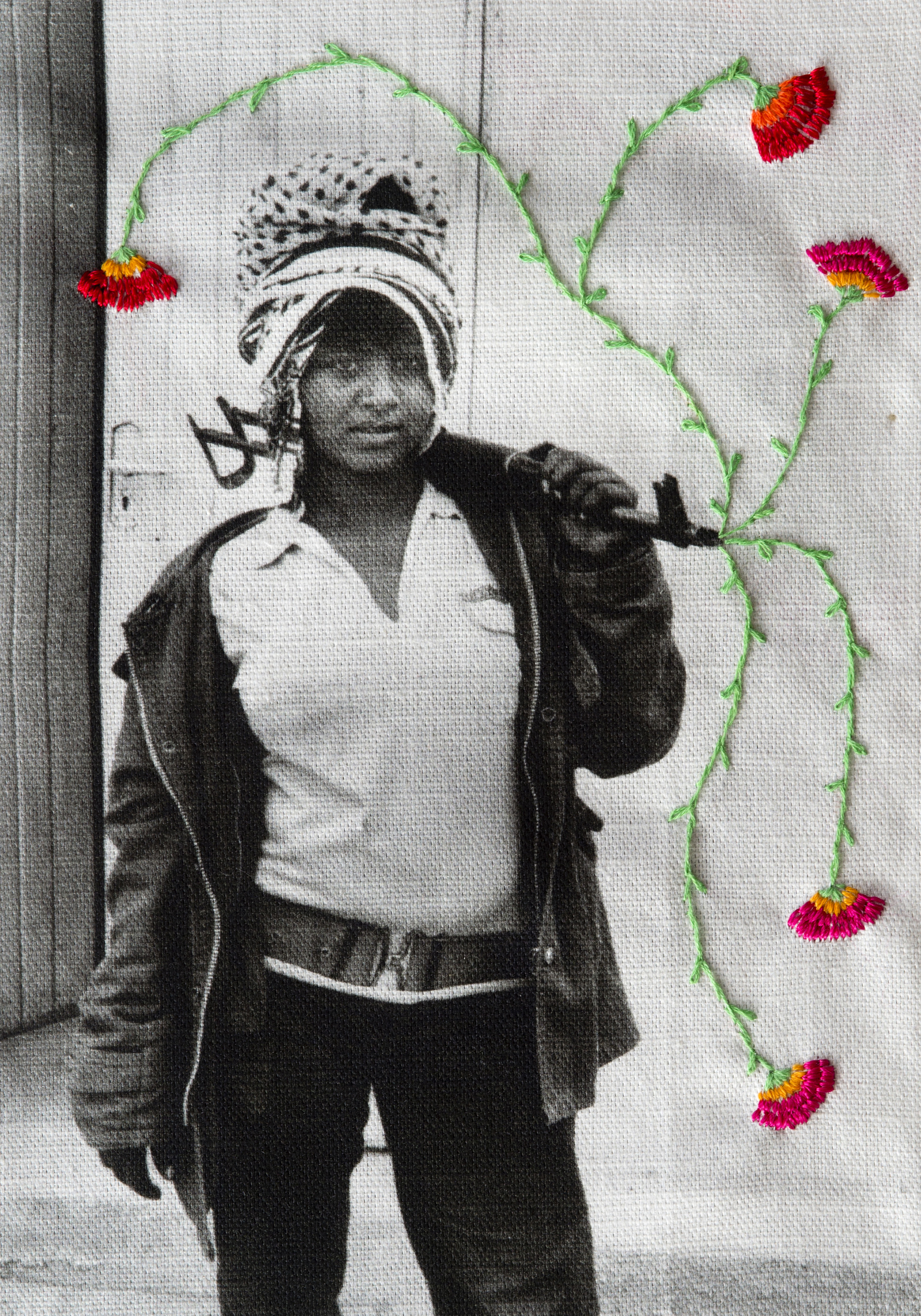
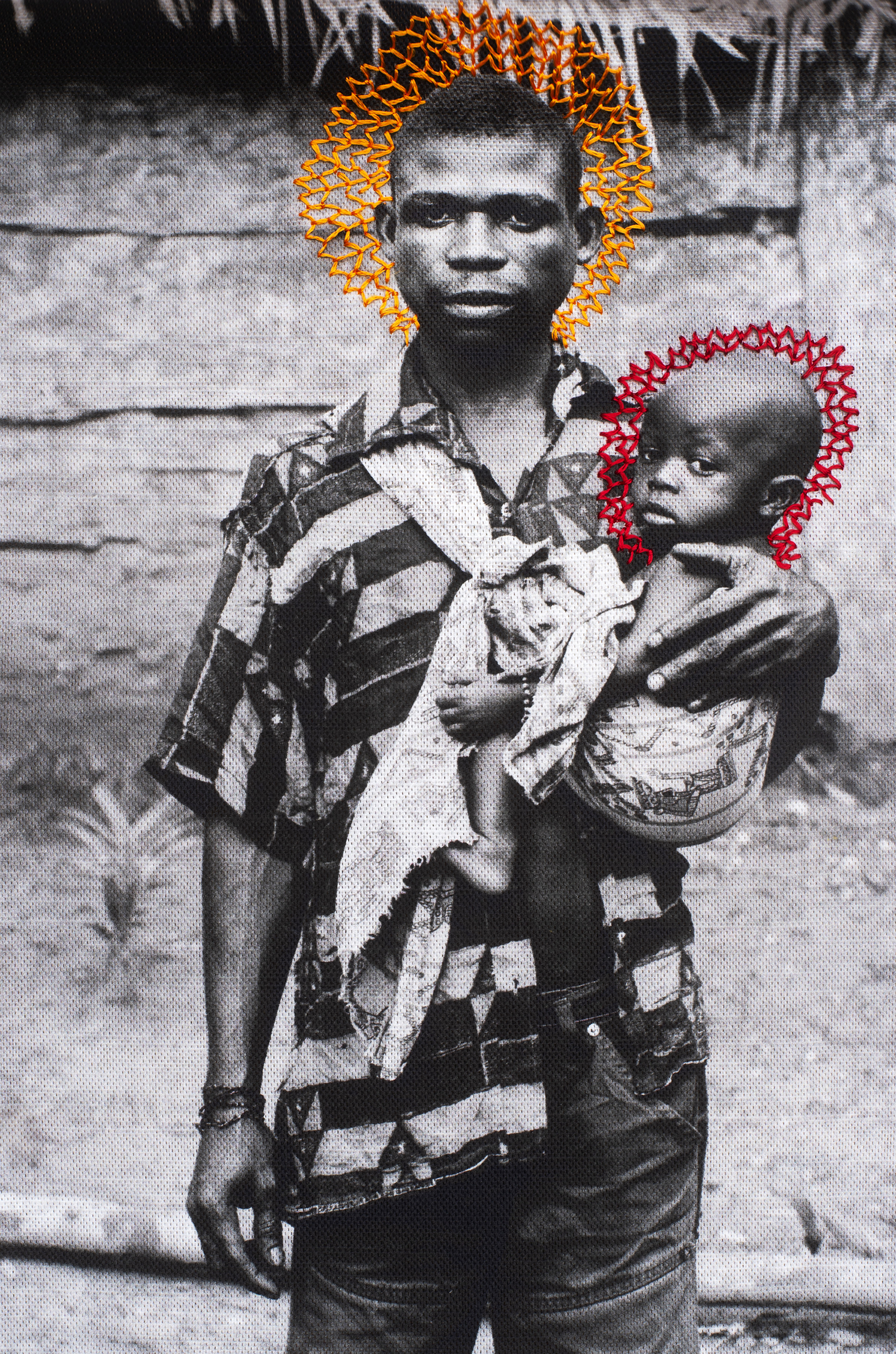
“Each quilt features carefully curated edits of photographs from her voluminous archive, printed onto cotton or linen, stitched together, and adorned with embroidery sourced from the countries where the original images were made”
Sewing Conflict, currently on show at Glasgow’s Street Level Photoworks, brings together several of Matthews’ bodies of work for the first time, offering a comprehensive exploration of the impact of war on the lives of women and girls. The exhibition includes Matthews’ series of photo quilts, a medium she has practised extensively over recent years. Each quilt features carefully curated edits of photographs from her voluminous archive, printed onto cotton or linen, stitched together, and adorned with embroidery sourced from the countries where the original images were made. These quilts act as visual narratives, preserving the stories of individuals and communities affected by war and displacement.
The exhibition also features pieces from Torn Apart, a series which focuses on the crisis in Sudan, as well as new images from Gaza. Together these works provide a multifaceted perspective on the enduring consequences of war and displacement. A particular highlight is the Rwanda Quilt, created by Matthews in 1995. This remarkable work serves as a tribute to survivors of the Rwandan Genocide, a devastating massacre that claimed the lives of more than 800,000 people. The quilt, with its intricate combination of photography and embroidery, stands as a poignant symbol of remembrance.
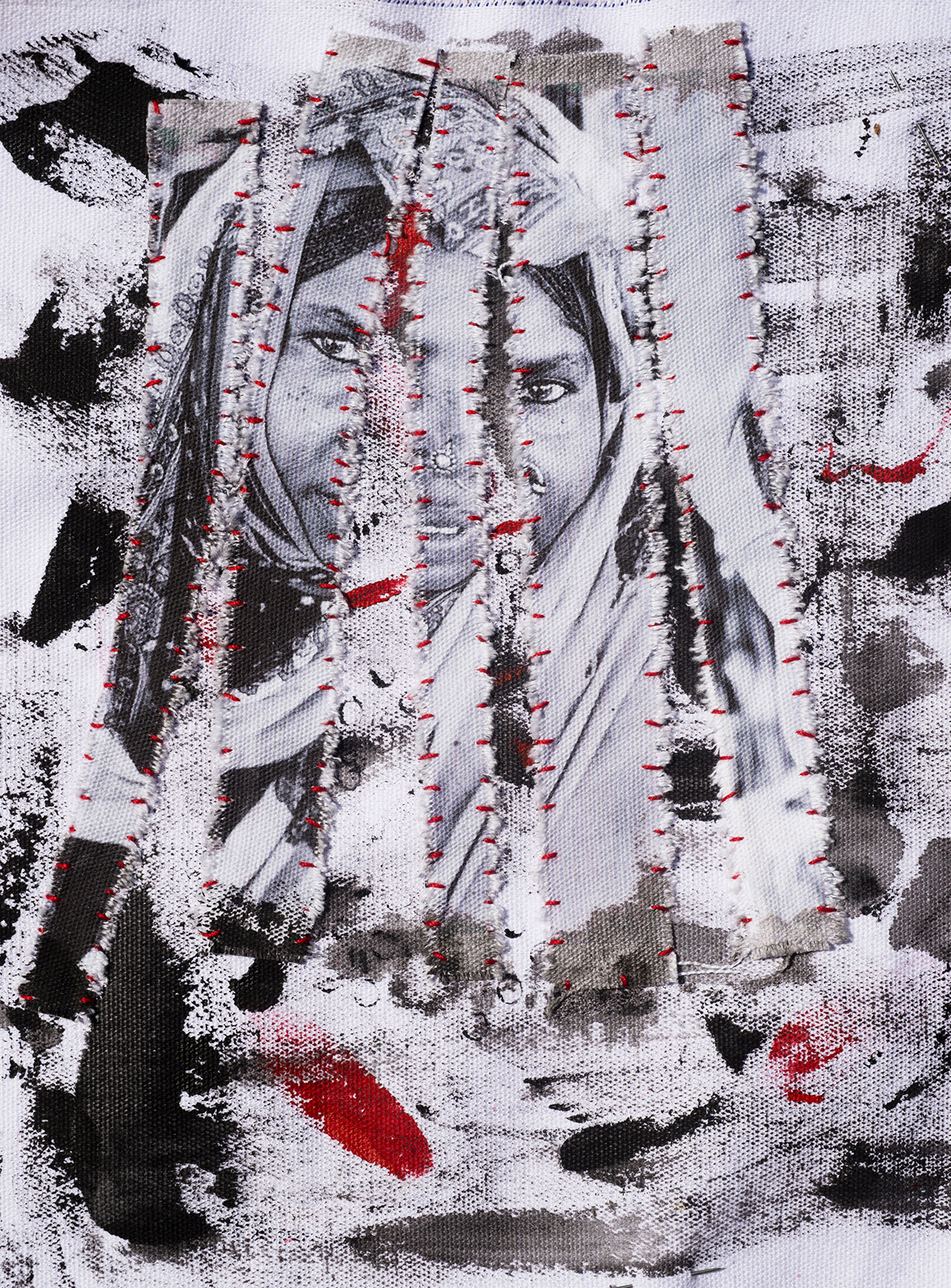
Among other notable works on display is the series Facial De-recognition (2021), which comprises 35 portraits of Afghan women. In these images, embroidery obliterates the women’s features, representing the loss of identity and freedom faced by Afghan women under Taliban rule. Created in response to the Taliban’s resurgence in Afghanistan in August 2021, this work is a powerful statement against the erasure of women’s and girls’ voices and rights. Matthews brings attention to the challenges faced by them and the urgent need for protection.
Speaking about her motivation for Facial De-recognition, Matthews says, “Once again, women are being forced to disappear from view. As girls are denied education and women lose their jobs in most sectors, I have printed photos from my archive onto linen/cotton, painted out the background in the original photos, and then added embroidery to both honour and disguise, and differentiate between past and present.” The work highlights the resilience and strength of Afghan women even in the face of adversity.
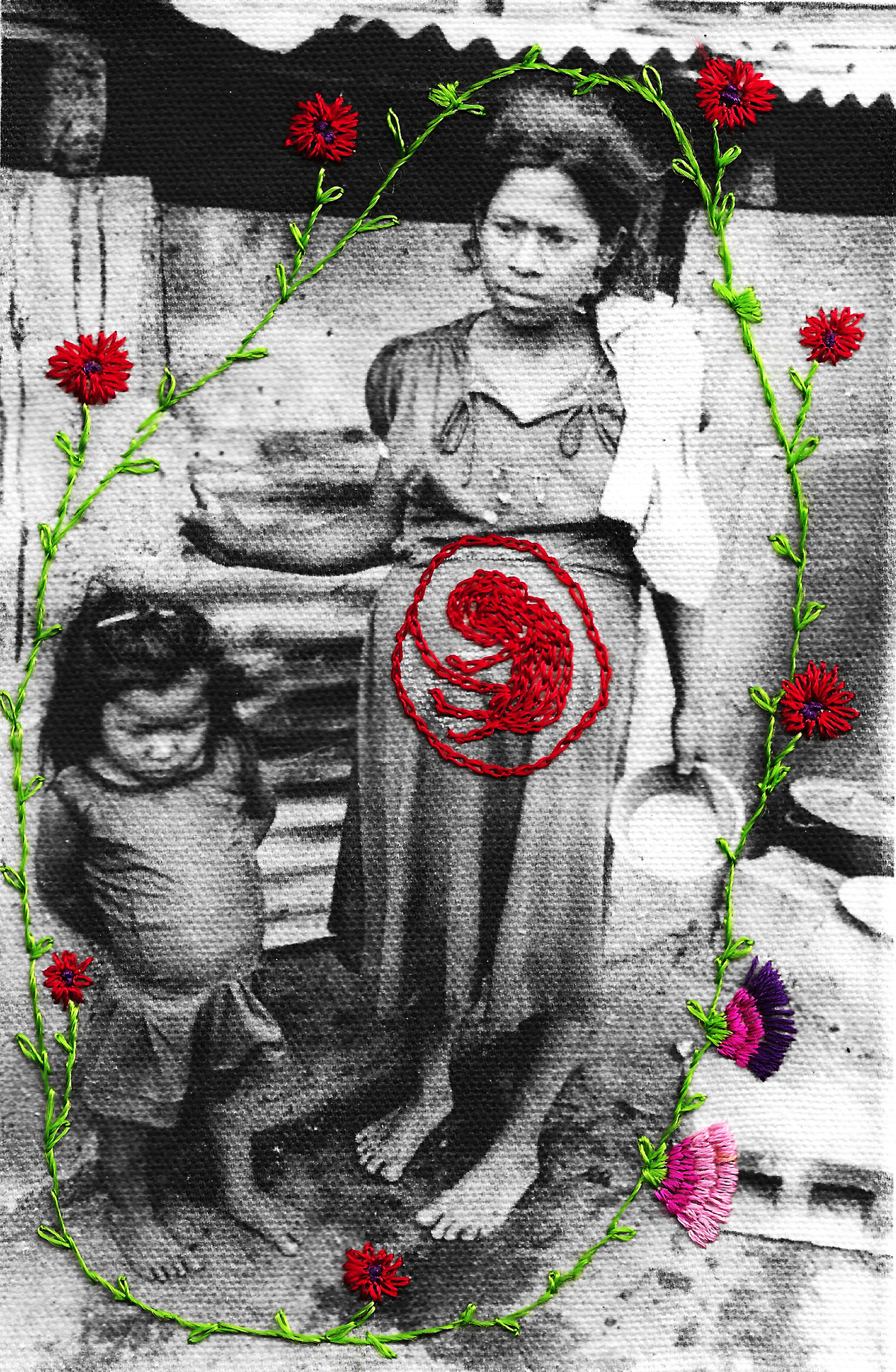
Matthews’ use of needlework seems an appropriate activity as it references the clandestine activity of women in Herat during the period of Taliban rule in the late-1990s, when women would meet as part of the Golden Needle Sewing School – ostensibly to sew, but in reality to study literature. The very act of embroidery becomes a symbol of resistance and empowerment, harking back to the hidden fortitude of women in the face of oppression.
Matthews’ needlework is certainly making its mark at present. Martin Parr comments: “We saw some slides of Jenny Mathews’ Miners’ Strike sewing and immediately commissioned her to make a quilt. We are delighted by the result, her careful sewing seems to amplify the message in her photos.” The work now makes up part of One Year! Photographs from The Miners’ Strike 1984/85 exhibition, on show at the Martin Parr Foundation in Bristol until 31 March.
Writer and photo historian Max Houghton emphasises the importance of Matthews’ career in chronicling the experiences of women. “Matthews has been a collector of women’s stories for over four decades, which she has recorded via the camera,” Houghton says. “Her encounters – from Nicaragua to Afghanistan to Palestine – have frequently taken place during conflict, or in its aftermath, and in this way she has become a vital witness to the devastating and long-lasting effects of contemporary war on women.”
Jenny Matthews – Sewing Conflict: Photography, War and Embroidery is at Street Level Photoworks, Glasgow, until 12 May

